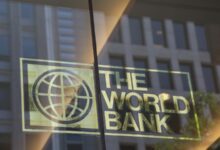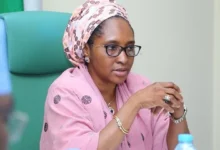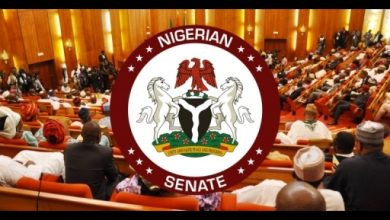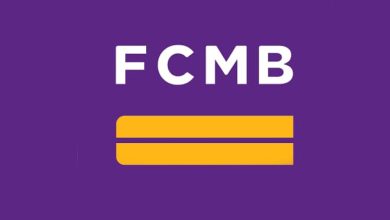MAN, LCCI, others kick as CBN raises lending rate to 13%
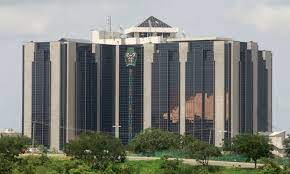
The Manufacturers Association of Nigeria, the Lagos Chamber of Commerce and Industry, and the Nigerian-American Chamber of Commerce, have criticised the hiking of the monetary policy rate by the Central Bank of Nigeria, saying that the policy will hurt the Nigerian economy.
The CBN Governor, Godwin Emefiele, after the third Monetary Policy Committee, MPC, meeting of 2022 on Tuesday, noted that the committee backed the raising of the benchmark interest rate from 11.5 per cent to 13.5 per cent.
This is the first time the apex bank is raising the interest rate in two years, having pursued an expansionary monetary policy in the last 24 months.
While addressing reporters after the MPC meeting in Abuja, Emefiele justified the raise, saying that the MPC was suspicious there might be an aggressive accretion of inflation
To prevent the looming inflation, he said, the MPC had to increase the monetary policy rate by 150 basis points.
The apex bank retained the asymmetric corridor around the MPR at +100 /-700 basis points, Cash Reserve Ratio at 27.4 per cent, and Liquidity Ratio at 30 percent.
MAN, LCCI, NACC criticise the move
Reacting to the development, President of the MAN, Mansur Ahmed, told The Punch that the move would compound the plight of manufacturers, especially the small-scale segment of the productive sector.
Ahmed said, “Commercial loans are already beyond the reach of manufacturers, especially the small and medium manufacturers. The continuous rising in food prices is worrisome. Then, exchange rate continues to go up. Where are we going as a country? The CBN leadership will have to do something about it.”
He was, however, aware that the continuous rising of inflation locally and internationally had necessitated the move, noting that it was unfortunate that Nigeria was not reaping the gains of high oil prices in the current oil boom.
On his part, Deputy President of the LCCI, Gabriel Idahosa, described the development as an inevitability, considering the recent upward inflationary trend.
“It was actually expected because inflation has gone up to 16 per cent. The CBN target is 13 per cent, so we have lost the downward trending inflation rate that has been on for quite a number of months. By last week, the financial community expected the CBN to increase the interest rate, starting with the one just announced. It was predictable.”
He said the lending rate increase would give rise to more hardship due to the higher cost of borrowing that would apply to all sectors of the economy.
“It means more hardship. It means higher cost of borrowing,” he noted, saying that all sectors of the economy would now feel the pinch.
Similarly, the Director-General of the Nigerian-American Chamber of Commerce, Sola Obadimu, condemned the decision by the CBN. He further stated that indiscriminate increase of lending rate by the CBN would inevitably drive up the cost of doing business.
He said, “There is no way you can effectively operate business at such rates. All these things have been talked about a million times by the private sector because realistically, you can’t get loans at the bank at the rate (13 per cent). It’s just another input in the range of factors that affect the cost of doing business.”
He said the government had continuously shown apathy to the plight of the private sector through unyielding taxation and several other policies.
“I think industry and enterprise are generally being killed gradually. If you’re an employer of labour, government is indirectly telling you, who asked you to employ people? There is no effort at all to support the growth of businesses. There is multiplicity of taxes by various agencies of government. Some private sector operators are determined to stay in business, some are winding up, some are relocating. That trend will continue. It’s complete apathy to private enterprise.”
Director of Trade, Investment and Programmes at the Nigerian-British Chamber of Commerce, Ine Wiche, also faulted the decision of the CBN, describing the interest rate hike as ill-timed and a step in the wrong direction.
“We don’t need that now. Everybody is crying that things are getting more expensive. We don’t need any further increments now. I don’t think it’s a good move. It’s a step in the wrong direction.”
On his part, the former President of the National Association of Small Scale Industrialists , Segun Kuti-George, said the decision was inevitable with increased inflation across the world.
He, however, noted that the interest rate hike would raise cost of production, reduce SMEs’ capacity to employ and the purchasing power of consumers.
“Cost of funds will rise; production costs will increase and unemployment will also rise. People may not be able to afford what is offered for sale,” he said.
Situation expected but may have adverse effects –Economists
Economists told The Punch that the situation was expected given several global realities such as rising inflation, Russia-Ukraine conflict, COVID-19 and other headwinds.
The Chief Executive Officer of Centre for the Promotion of Private Enterprise, Dr Muda Yusuf, noted that “the hike in MPR by 150 basis points to 13 per cent by the MPC is therefore understandable.”
He was, however, not sure how much impact the rate hike would have on inflation.
“What the recent rate hike means for the economy is that the cost of credit to the few beneficiaries of the bank credits will increase, which will impact their operating costs, prices of their products and profit margins.


